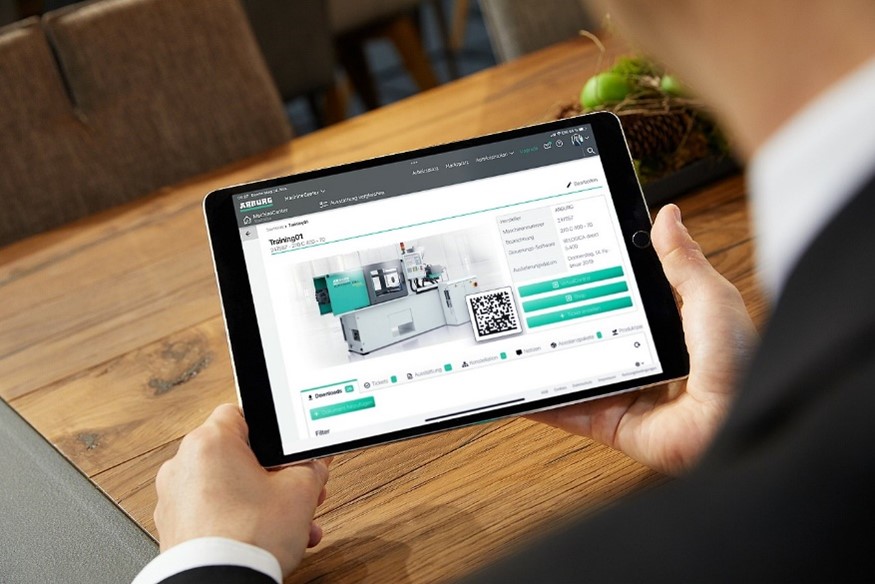
May 29, 2024
The Crucial Role of Digital Edge Technology
How Connectivity Enhances Plastics Processing Equipment
The evolution from isolated, standalone systems to fully connected, intelligent networks marks a pivotal moment. This connectivity isn’t just a buzzword; it’s a comprehensive strategy that boosts efficiency, enhances quality, and propels plastics processing into a new era of innovation and sustainability. Let’s explore how connecting the dots through technology can bring about substantial benefits in the plastics processing industry.
Enhanced Efficiency and Productivity
Connectivity in plastics processing equipment allows for real-time data collection and analysis. Machines equipped with sensors can continuously monitor production parameters such as temperature, pressure, and cycle times. This data is then used to optimize the manufacturing process, ensuring operations run at peak efficiency. The result is a significant reduction in downtime, increased throughput, and better resource management. By automating data collection, companies can streamline operations and reduce the likelihood of human error, leading to improved overall productivity.
Improved Quality Control
Quality control is paramount in plastics manufacturing. Connected equipment can detect deviations in product quality at an early stage by monitoring critical parameters during the production cycle. This capability enables immediate corrections, reducing waste and ensuring that products meet stringent quality standards consistently. Furthermore, the aggregation of quality-related data over time supports the implementation of statistical quality control (SQC) and Six Sigma methodologies, which further refine the production process and enhance product reliability.
Predictive Maintenance
One of the standout advantages of connected plastics processing equipment is predictive maintenance. By analyzing data from equipment sensors, manufacturers can predict when a machine part is likely to fail and schedule maintenance before a breakdown occurs. This proactive approach prevents unplanned downtime, which can be costly and disrupt production schedules. Moreover, predictive maintenance extends the lifespan of the machinery, optimizes maintenance costs, and enhances safety in the manufacturing environment.

Remote Monitoring and Control
With connectivity, operators no longer need to be physically present to oversee every aspect of the production line. Remote monitoring capabilities allow for the management of equipment from any location, providing flexibility and immediate response to any issues that may arise. Additionally, remote control technologies enable adjustments to production settings in real time, which is invaluable for manufacturers with multiple plants or those who need to manage operations across different regions.
Sustainability and Energy Management
Connected plastics processing equipment plays a crucial role in promoting sustainability. By optimizing the use of energy and materials, connected systems can significantly reduce waste and energy consumption. For instance, smart systems can adjust energy usage based on real-time demand and operational conditions, minimizing the environmental footprint of manufacturing processes. Moreover, enhanced process control ensures that materials are used more efficiently, reducing excess and scrap.
Integration with Industry 4.0
Connectivity is a cornerstone of Industry 4.0, the new phase in the industrial revolution that focuses on interconnectivity, automation, machine learning, and real-time data. In plastics processing, this integration allows for greater collaboration between machines and systems, leading to smart factories where processes are fully optimized, agile, and adaptable to changes in demand or production requirements.
Conclusion
The integration of connectivity in plastics processing equipment represents a significant leap forward in manufacturing technology. It not only boosts efficiency, productivity, and quality but also enhances predictive maintenance and sustainability efforts. As the industry continues to evolve, the adoption of connected technologies will undoubtedly become standard practice, shaping the future of plastics processing for a smarter, more efficient, and sustainable tomorrow. This digital transformation is not merely an upgrade—it’s a complete reimagining of what’s possible in the manufacturing landscape.
ARBURG Digitalization
Smart manufacturing and digitalization are the future. ARBURG has brought together digital products and services in arburgXworld. Customers are able to use the customer portal of the same name to manufacture plastic parts even more flexibly and competitively.
